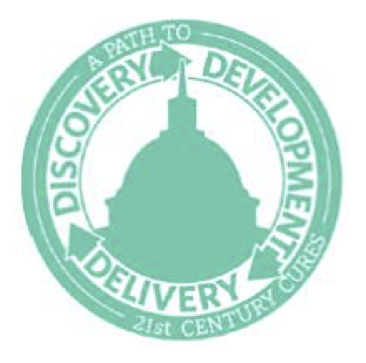Five years ago, we initiated a “Call to Action”, that included a nationwide request of patients and their families to join us in an effort called “21st Century Cures”. Our combined efforts led to the enactment of the 21st Century Cures Act in 2016. Today, the 21st Century Cures Act is helping to advance medical research and foster a new era of medical innovations that may one day establish new cures for the world’s cruelest diseases. Despite our success, there is more work to do so we are initiating “Cures 2.0” and asking patients and their families to join us again in a bipartisan effort that will build upon the progress we have made together.
Cures 2.0 is an effort to modernize coverage and access to life-savings cures in the United States and
across the globe. Patients from across the country continually remind us that a modernized system of
developing new cures will require a modernized health care delivery system capable of delivering them
to patients in need.
One area of significant focus for Cures 2.0 is digital health. We believe that digital health technologies
hold the promise of modernizing U.S. health care in ways that transform how Americans access
medical services. Digital technologies have helped to transform other sectors of the U.S. economy in
ways that improve access to products and services and decrease their costs without harming quality. It
is time for that same transformation to occur in health care. Recognition of digital platforms as sources
of medical services combined with reforms to how digital products may be covered and reimbursed for
by payers such as Medicare will be critical to realizing this potential.
We also intend to modernize how new cures and medical products are covered. Today, coverage of a
medical product approved for sale by the U.S. Food and Drug Administration (FDA) can take years to
be covered by health insurance, including Medicare and Medicaid. Looking forward, the promise of
personalized medicine is real – the science exists. However, the financial implications of moving
health care coverage from large population medical products to those developed for smaller
populations is impeding our efforts. As a key goal is to support access to life-savings cures, we would
like to explore how reform of Medicare coding, coverage, and payment could better support patients’
access to innovative therapies.
Another area of focus is how to harness data to empower patients and improve their health. For example, in the 21st Century Cures Act, we challenged FDA to evaluate and utilize real world evidence (RWE). FDA has embraced this challenge by releasing a framework for RWE and offering guidance to product sponsors on how to utilize RWE in submissions. We would like to build on our initial RWE work, both at FDA and across the federal health care landscape.
Finally, we would like to improve the ability of families and caregivers to support their loved ones.
Tackling this goal could involve increasing family and caregiver health literacy, better training
caregivers in some kinds of specialized care, providing community resources to aid in caregiver
education, and enabling patients and their families, caregivers, and providers to be better informed of
their options for treatment and services, as well as associated costs.
For those priority reforms we have identified, what specific considerations would you like us to
consider as we seek to legislate? For those interested in reforms not included in this document, we still
want to hear from you. Cures has been and forever will be a process of health care reform predicated
on input from stakeholders and collaboration as we move them through the legislative process. Please
send your input and feedback to [email protected] by December 16, 2019. We look forward to
working with you.
Diana DeGette, Member of Congress
Fred Upton, Member of Congress
